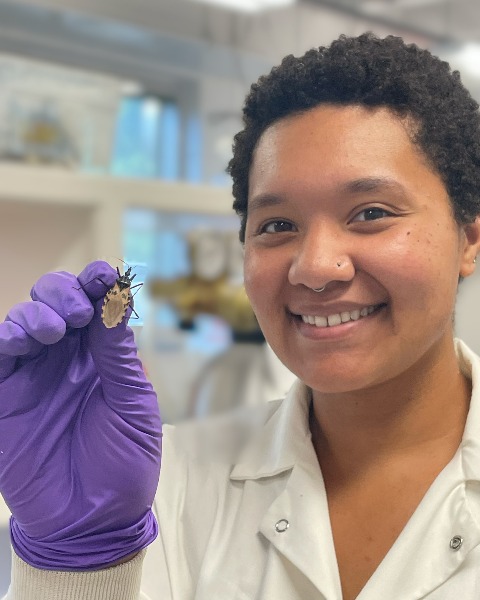Student Poster
Physiology, Biochemistry, and Toxicology
Student Competition
Student
Grad Competition PBT: Physiology and Toxicology
D3041: Impacts of the microbiome on kissing bug host physiology
Monday, November 6, 2023
9:00 AM - 6:30 PM ET
Location: Prince George's Exhibit Hall BCD

Nia Imani Keyes-Scott
PhD Candidate
University of Georgia
Athens, Georgia
Presenting Author(s)
Bacterial symbionts are known to play an essential role in development and metabolism of many insect hosts, especially through nutrient provisioning. Axenic, or germ-free, insects exhibit nutrient deficiencies and inability to metabolize lipids and carbohydrates, which further impacts their ability to undergo normal development. Axenic insects often suffer from delayed developmental times or complete developmental arrest and increased mortality. Such is true in the case of the kissing bug, Rhodnius prolixus after loss of its symbiont, Rhodococcus rhodnii. B vitamin provisioning was originally hypothesized to be the primary benefit of R. rhodnii in R. prolixus, as B vitamins are not thought to be highly abundant in vertebrate blood. Through our 1st instar gut transcriptome comparing axenic nymphs and nymphs singly inoculated with R. rhodnii (gnotobiotic), we identified over 100 differentially expressed most of which were upregulated in gnotobiotic nymphs. Our findings demonstrate that R. rhodnii likely has additional roles in bugs outside of B vitamin provisioning, including roles in metabolism, development, and cuticle synthesis.

.png)


